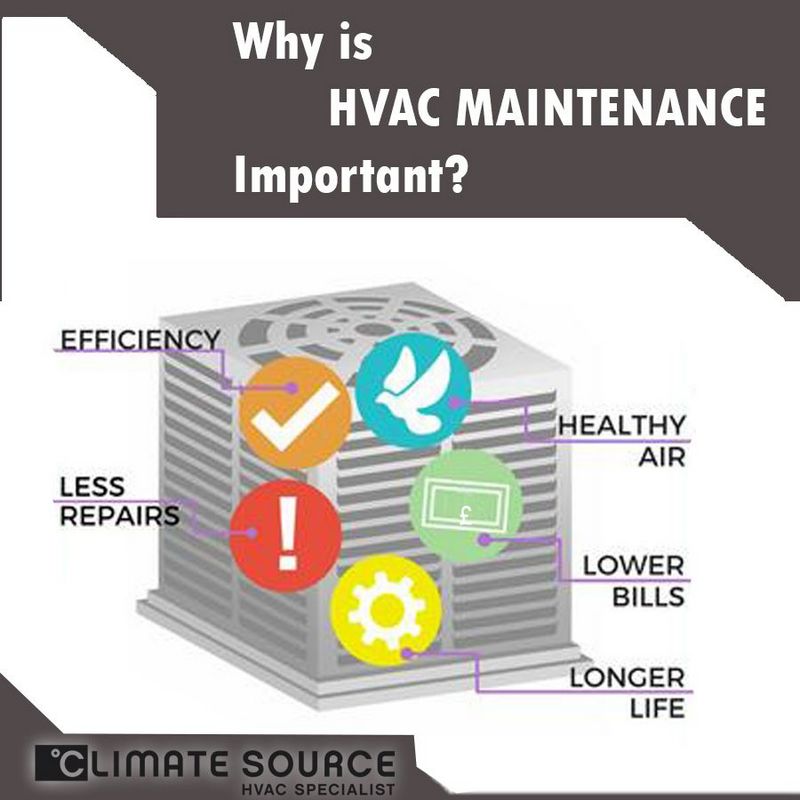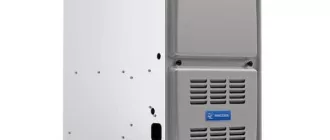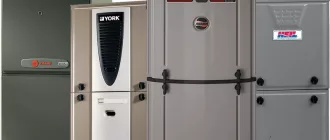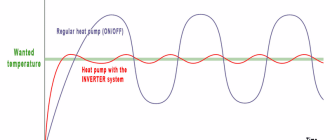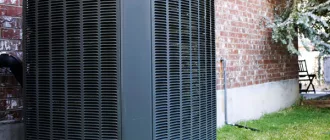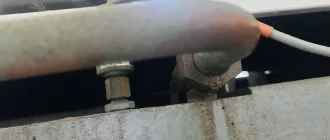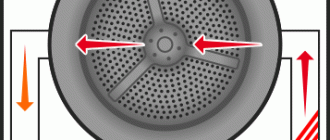
DIY HVAC Care: Simple Maintenance Tips that Can Save You Money
When it comes to saving money on your HVAC system, DIY maintenance is a simple and effective solution. By taking care of your HVAC system on your own, you can avoid costly repairs and extend the lifespan of your equipment. With a few easy tips and tricks, you can keep your HVAC system running smoothly and save money in the process.
One of the most important DIY HVAC maintenance tasks is regularly cleaning or replacing your air filters. Dirty filters can restrict airflow and force your system to work harder, which leads to increased energy consumption and higher utility bills. By keeping your air filters clean, you can improve the efficiency of your HVAC system and save money on your energy costs.
Another key DIY maintenance tip is keeping your outdoor unit free from debris and obstructions. Over time, leaves, branches, and other debris can accumulate around your HVAC unit, hindering airflow and reducing its efficiency. By regularly clearing away any debris and keeping the area around your unit clean, you can help your system operate more efficiently and save money on energy expenses.
Additionally, scheduling regular inspections and tune-ups for your HVAC system can save you money in the long run. By identifying and addressing any potential issues early on, you can prevent major breakdowns that could result in costly repairs or even the need for a full system replacement. Investing a little time and effort in DIY maintenance can go a long way in saving you money and ensuring that your HVAC system runs smoothly.
Why DIY HVAC Care Can Save You Money
Proper maintenance of your HVAC system is essential for its efficient operation and longevity. While hiring professionals for regular maintenance is important, there are several simple DIY tips that can help you save money.
By taking care of minor HVAC issues on your own, you can avoid expensive repair bills. Regularly checking and cleaning the filters, coils, and vents can improve the system’s efficiency, reducing energy consumption and ultimately saving you money on utility bills.
Additionally, DIY HVAC care allows you to identify and address potential problems early on, preventing major breakdowns and costly repairs. Simple tasks like checking for air leaks, cleaning condenser coils, and lubricating moving parts can significantly extend the life of your HVAC system.
Another way DIY HVAC care can save you money is by increasing the system’s overall efficiency, reducing the need for it to work harder and consume more energy. By keeping the system well-maintained, you can maximize its performance and minimize wear and tear, which in turn leads to significant cost savings.
Regular DIY HVAC maintenance also provides an opportunity to learn about your system and how it works. By familiarizing yourself with its components and functionalities, you can better understand when something is wrong and take appropriate action before it becomes a costly problem.
Overall, DIY HVAC care is a cost-effective way to ensure the proper functioning of your system. By investing a little time and effort in regular maintenance, you can extend the lifespan of your HVAC system, avoid costly repairs, and enjoy significant savings on energy bills.
Lower Energy Bills
One of the biggest advantages of regular DIY maintenance for HVAC systems is the potential to lower energy bills. By taking care of your HVAC system and performing basic maintenance tasks, you can ensure that it is running efficiently and using less energy.
Regular maintenance, such as cleaning or replacing air filters, can help improve the airflow in your HVAC system. When the airflow is unobstructed, the system doesn’t have to work as hard to cool or heat your home, resulting in lower energy usage and lower bills.
Another tip to save energy and money is to check and seal any air leaks in your home. Leaky windows, doors, or ducts can cause drafts and allow conditioned air to escape, making your HVAC system work harder to maintain the desired temperature. By sealing these leaks, you can improve the efficiency of your system and reduce energy waste.
Additionally, adjusting your thermostat can have a significant impact on your energy bills. By setting the temperature a few degrees higher in the summer and a few degrees lower in the winter, you can save money without sacrificing comfort. You can also consider installing a programmable thermostat to automatically adjust the temperature when you’re not home, further reducing energy usage.
In conclusion, taking care of your HVAC system through DIY maintenance can lead to significant savings on your energy bills. By performing simple tasks such as cleaning air filters, sealing air leaks, and adjusting your thermostat, you can improve the efficiency of your HVAC system and reduce energy waste. So start saving money today by taking care of your HVAC system!
Prevent Costly Repairs
To save money on HVAC maintenance and care, it is important to prevent costly repairs. By taking simple DIY steps, you can ensure the longevity and efficiency of your HVAC system. Here are some tips to help you avoid expensive repairs:
1. Change the air filters regularly. Dirty filters can restrict airflow and cause your HVAC system to work harder, leading to increased energy consumption and potential damage. Check the filters monthly and replace them as needed.
2. Keep the outdoor unit clean. Remove any debris, such as leaves or twigs, that may accumulate around the unit. This will prevent airflow obstruction and potential damage to the system.
3. Clean the indoor vents and registers. Dust and dirt can easily accumulate in these areas, hindering proper airflow and reducing the efficiency of your HVAC system. Regularly vacuum or wipe them clean to prevent blockages.
4. Schedule professional maintenance annually. While DIY care is important, it is also essential to have a qualified HVAC technician inspect your system on a regular basis. They can identify any potential issues before they turn into costly repairs.
5. Install a programmable thermostat. This allows you to set temperature schedules, ensuring that your HVAC system runs efficiently and only when necessary. It can help you save on energy costs and reduce wear and tear on the system.
By following these simple DIY maintenance tips and being proactive in caring for your HVAC system, you can prevent costly repairs and save money in the long run.
Extend HVAC Lifespan
Regular and simple maintenance is key to extending the lifespan of your HVAC system. By following these tips, you can save money and keep your system running efficiently for years to come:
1. Change the air filters regularly: Dirty filters can restrict airflow and cause your HVAC system to work harder. Check your filters monthly and replace them as needed.
2. Keep the outdoor unit clean: Clear away any debris, leaves, or grass clippings that may have accumulated around the outdoor unit. This will help prevent airflow blockages and improve the efficiency of your system.
3. Clean the evaporator and condenser coils: Over time, dirt and debris can accumulate on the coils, reducing their efficiency. Regularly cleaning them with a soft brush or vacuum can help improve airflow and prevent strain on the system.
4. Lubricate moving parts: Lubricate the bearings and motors of your HVAC system as recommended by the manufacturer. This will help reduce friction and prevent excessive wear and tear on the system.
5. Check refrigerant levels: Low refrigerant levels can indicate a leak in your system. If you notice reduced cooling or increased energy bills, it’s important to have a professional technician inspect and recharge the refrigerant as necessary.
6. Schedule regular professional maintenance: While DIY care is important, it’s also essential to have your HVAC system inspected and serviced by a professional technician on a regular basis. They can identify any potential issues and perform necessary repairs to keep your system running optimally.
By taking care of your HVAC system with these simple maintenance tips, you can extend its lifespan, save money on repairs, and ensure your home stays comfortable all year round.
Improve Indoor Air Quality
Improving indoor air quality is an important aspect of DIY HVAC care. By following a few simple tips, you can save money on maintenance and improve the overall air quality in your home.
Regularly changing your HVAC air filters is one of the easiest and most effective ways to improve indoor air quality. Dirty filters can restrict airflow and allow dust, pollen, and other allergens to circulate in your home. By replacing your filters regularly, you can reduce these pollutants and ensure clean, fresh air throughout your space.
In addition to changing filters, regularly cleaning the vents and ducts in your HVAC system can also improve indoor air quality. Dust, dirt, and debris can accumulate in these areas and contribute to poor air quality. By using a vacuum or damp cloth to clean these components regularly, you can prevent the buildup of allergens and ensure optimal airflow.
Using natural air fresheners, such as essential oils or plants, can also help to improve indoor air quality. These alternatives to chemical-based air fresheners can provide a pleasant aroma and remove odors from the air. Additionally, opening windows and allowing fresh air to circulate throughout your home can help to reduce indoor pollutants and improve overall air quality.
By incorporating these DIY tips into your HVAC care routine, you can save money on maintenance and improve the indoor air quality in your home. Taking simple steps to ensure clean, fresh air can have a positive impact on your health and well-being.
Clean and Replace Air Filters
One of the simplest ways to save money and keep your HVAC system in good working condition is to regularly clean and replace the air filters. These filters play a crucial role in trapping dust, dirt, and other particles, preventing them from circulating in your home.
Over time, air filters can become clogged and dirty, making your HVAC system work harder and less efficiently. This can result in higher energy bills and more frequent breakdowns. By cleaning or replacing the air filters on a regular basis, you can improve the air quality in your home and extend the lifespan of your HVAC system.
Cleaning or replacing air filters is a simple DIY task that can be done in just a few minutes. Start by turning off the HVAC system and locating the air filter. Remove the filter and check for any visible dust or debris. If the filter is dirty, gently rinse it with water or use a vacuum cleaner to remove the dirt. Allow the filter to dry completely before reinstalling it.
If the air filter is damaged or worn out, it’s time to replace it. Most HVAC systems use standard-sized filters that can be easily found at hardware stores or online. Make sure to choose a filter that is compatible with your system and has the appropriate MERV (Minimum Efficiency Reporting Value) rating. Higher MERV ratings indicate better filtration efficiency.
Remember to clean or replace your air filters every 1-3 months, depending on the level of dust and dirt in your home. Regular maintenance of your HVAC system’s air filters will not only save you money but also improve the overall performance and lifespan of your system.
Clear Debris from Vents and Registers
One simple and cost-effective way to save money on HVAC maintenance is to regularly clear debris from your vents and registers. Over time, dust, dirt, and other debris can accumulate in these air outlets, blocking the flow of air and reducing the efficiency of your HVAC system.
By performing this DIY task, you can improve the airflow in your home, increase the lifespan of your HVAC equipment, and potentially save money on energy bills. Here are some tips to help you get started:
| Tips for Clearing Debris from Vents and Registers |
| 1. Turn off your HVAC system before proceeding to avoid any accidents or damage. |
| 2. Locate all the vents and registers in your home. They are usually found on the walls, ceilings, or floors. |
| 3. Use a vacuum cleaner with a brush attachment or a soft brush to gently remove the debris from the vent covers. Be careful not to scratch or damage the surfaces. |
| 4. If you notice any stubborn debris that cannot be removed with a vacuum or brush, consider using compressed air to blow it out. However, be cautious and follow the instructions provided by the manufacturer to avoid any accidents. |
| 5. Clean the vent covers periodically with a mild detergent and water solution to remove any remaining dirt or dust. |
| 6. Ensure that the vents and registers are properly installed and sealed to prevent air leakage. |
| 7. Repeat this maintenance task every few months or as needed to keep your HVAC system running smoothly. |
By regularly clearing debris from vents and registers, you can optimize the performance of your HVAC system, potentially lowering energy consumption and saving money in the long run. Remember, DIY maintenance tasks like this can be simple and effective ways to keep your HVAC system in good condition without breaking the bank!
Check and Clean Condenser Coils
Regularly checking and cleaning the condenser coils of your HVAC system can save you money on maintenance and improve its overall efficiency.
Condenser coils play a vital role in the cooling process of your HVAC system. Over time, dirt, dust, and debris can accumulate on the coils, reducing airflow and causing the system to work harder and use more energy.
To check the condenser coils, start by turning off the power to your HVAC system. Locate the condenser unit, typically located outside near your house. Remove the outer cover to gain access to the coils.
Inspect the coils for any visible signs of dirt or debris. If you notice a buildup, it’s time to clean them. Use a soft brush or a vacuum cleaner with a brush attachment to gently remove the dirt and debris. Be careful not to bend or damage the delicate fins of the coils.
After cleaning the coils, check the surrounding area to ensure there is no debris that can obstruct airflow. Trim any nearby vegetation that may be blocking the condenser unit.
Regularly checking and cleaning the condenser coils of your HVAC system can help improve its performance, reduce energy consumption, and extend its lifespan. It’s a simple and cost-effective maintenance tip that can save you money in the long run.
Inspect and Clean Evaporator Coils
Proper care and maintenance of your HVAC system can save you a lot of money in the long run. One simple maintenance task that you can do yourself is inspecting and cleaning the evaporator coils.
The evaporator coils are an important part of your HVAC system as they help cool the air that is circulated throughout your home. Over time, these coils can become dirty and clogged with dust, dirt, and other debris. This can cause your system to work harder and less efficiently, leading to increased energy consumption and higher utility bills.
To ensure that your evaporator coils are working properly, it is important to inspect them regularly. Look for any signs of dirt or debris buildup, such as dark spots or discoloration. If you notice any issues, it is time to clean the coils.
Cleaning the evaporator coils is a fairly simple process that you can do yourself. Start by turning off the power to your HVAC system. Then, using a soft brush or vacuum cleaner, gently remove any loose dirt or debris from the coils. Be careful not to damage the delicate fins of the coils.
Once the loose dirt is removed, it is time to clean the coils more thoroughly. Mix a solution of equal parts water and vinegar, and apply it to the coils using a spray bottle. Let the solution sit for a few minutes to loosen any stubborn dirt or grime. Then, use a soft brush or cloth to gently scrub the coils, paying special attention to any areas that are particularly dirty.
After cleaning the coils, rinse them off with clean water to remove any remaining dirt or vinegar solution. Allow the coils to dry completely before turning the power back on to your HVAC system. Regularly cleaning your evaporator coils will help to improve the efficiency of your HVAC system and save you money on energy costs.
Remember, HVAC maintenance is an important part of homeownership, and doing it yourself can save you money. By inspecting and cleaning your evaporator coils regularly, you can ensure that your system is working at its best and save on energy costs in the process.
Check and Clean Blower Components
Proper care and maintenance of your HVAC system can save you money in the long run. One of the simple DIY tips to keep your HVAC system running efficiently is to regularly check and clean the blower components.
The blower components, including the blower motor, fan, and housing, play a crucial role in circulating air throughout your home. Over time, dust, dirt, and debris can accumulate on these components, which can lead to reduced airflow and increased strain on the system.
To check and clean the blower components, start by turning off the power to your HVAC system. This can usually be done by flipping the corresponding switch on your electrical panel. Once the power is off, locate the blower motor and remove any debris that may have accumulated around it.
Next, use a soft brush or vacuum cleaner with a brush attachment to gently clean the blower fan blades and housing. Be careful not to damage the components while cleaning. If you notice any excessive dirt or buildup that cannot be easily removed, you may need to disassemble the blower components for a more thorough cleaning.
After cleaning the blower components, also check the blower motor belt, if applicable. Over time, the belt can become worn or loose, which can affect the performance of the blower. If you notice any signs of wear or if the belt is too loose, it may need to be replaced.
Regularly checking and cleaning the blower components of your HVAC system can improve its efficiency and extend its lifespan. By performing simple DIY maintenance tasks like this, you can save money on energy bills and prevent costly repairs down the line.
Lubricate Moving Parts
Regularly lubricating the moving parts of your HVAC system is a simple DIY maintenance task that can save you both time and money in the long run. By keeping these parts well lubricated, you can ensure that they operate smoothly and efficiently, reducing the risk of damage and extending their lifespan.
Start by identifying the moving parts of your HVAC system, such as the motor, fan, and blower. These components require regular lubrication to prevent friction and wear. Make sure to use the appropriate lubricant recommended by the manufacturer, as using the wrong type can cause damage.
Before lubricating, turn off the power to your HVAC system to avoid any accidents. Use a brush or cloth to remove any dust or debris from the moving parts before applying the lubricant. Apply a few drops of lubricant to each part, taking care not to overdo it.
Once you have lubricated all the necessary parts, turn the power back on and listen for any unusual noises. If you notice any grinding or squeaking sounds, it may be a sign that you need to apply more lubricant or that a part needs to be replaced.
Lubricating the moving parts of your HVAC system is a simple and cost-effective way to ensure its smooth operation and prevent potentially costly repairs. By incorporating this DIY maintenance task into your regular HVAC care routine, you can save money and extend the lifespan of your system.
Check and Adjust Thermostat Settings
One simple way to save money on HVAC care and maintenance is by checking and adjusting your thermostat settings. The thermostat is a crucial component of your HVAC system, as it controls the temperature in your home.
By adjusting the settings on your thermostat, you can optimize energy usage and reduce your overall HVAC costs. Here are a few tips:
1. Set the temperature wisely: Make sure to set your thermostat to a comfortable temperature while also keeping in mind energy efficiency. For example, during the winter, setting the thermostat a few degrees lower can help you save on heating costs. Similarly, during the summer, setting the thermostat a few degrees higher can help you save on cooling costs.
2. Utilize programmable thermostats: Consider installing a programmable thermostat if you haven’t already. These thermostats allow you to set different temperature schedules throughout the day, depending on your needs. For instance, you can program the thermostat to lower the temperature when you’re away from home and increase it when you return. This feature can help save energy and money.
3. Take advantage of energy-saving modes: Many thermostats come with energy-saving modes such as “eco” or “sleep” mode. These modes optimize the temperature settings for energy efficiency. Consult your thermostat’s user manual to understand how to activate and use these modes properly.
Regularly checking and adjusting your thermostat settings is an essential part of HVAC care and maintenance. By being mindful of your settings, you can save money and ensure that your HVAC system operates efficiently.
Seal Air Leaks in Ductwork
When it comes to your HVAC system, one of the easiest ways to save money and take care of it is by sealing air leaks in your ductwork. Air leaks can cause your system to work harder and less efficiently, leading to increased energy consumption and higher utility bills. Thankfully, sealing these leaks is a simple DIY maintenance task that can make a big difference.
The first step is to locate any air leaks in your ductwork. You can do this by running your hand along the ducts while the system is running and feeling for any air escaping. Another method is to use a smoke pencil or a thin piece of tissue paper near the ducts. If you notice the smoke or paper being drawn towards a spot, it indicates an air leak.
Once you have identified the leaks, you can proceed to seal them. A common method is to use foil tape or mastic sealant, which can be found at your local hardware store. Make sure to clean the area around the leak before applying the tape or sealant. Wrap the tape tightly around the leak or apply the sealant, ensuring a secure and airtight seal.
Sealing air leaks in your ductwork not only helps to save money on energy bills, but it also improves the performance of your HVAC system. By preventing air from escaping, it allows your system to deliver conditioned air more efficiently, keeping your home comfortable and reducing wear and tear on the system.
Remember, regular HVAC maintenance is important, and sealing air leaks in your ductwork is a DIY task that shouldn’t be overlooked. Take the time to inspect your ducts, seal any leaks you find, and enjoy the benefits of improved energy efficiency and cost savings.
Key takeaway:
Save money and take care of your HVAC system by sealing air leaks in your ductwork. This simple DIY maintenance task can significantly improve energy efficiency and reduce utility bills. Locate any air leaks by feeling for escaping air or using a smoke pencil or tissue paper. Clean the area around the leak and use foil tape or mastic sealant to create a tight, airtight seal. Sealing air leaks improves HVAC performance and helps to keep your home comfortable.
Clean and Unblock Condensate Drain Line
A well-maintained HVAC system can save you a lot of money in the long run. One simple and DIY way to save money on HVAC maintenance is to clean and unblock your condensate drain line regularly. The condensate drain line is responsible for removing excess moisture from your air conditioner, allowing it to function properly and efficiently.
Here are some tips to help you clean and unblock your condensate drain line:
- Turn off your HVAC system before starting any maintenance work to avoid any accidents or injuries.
- Locate the condensate drain line. It is usually a PVC pipe attached to your air conditioner or furnace.
- Check for any blockages or clogs in the drain line. You can use a wet-dry vacuum or a pipe cleaner to remove any debris.
- Flush the drain line with a mixture of equal parts vinegar and water. This will help dissolve any buildup in the line.
- Once the line is clear, pour hot water down the drain to further clean it.
- Inspect the drain pan for any mold or algae growth. If you notice any, clean it with a mixture of bleach and water.
- Make sure the condensate drain line is properly connected and has no leaks.
- Finally, turn on your HVAC system and check if the condensate drain line is draining properly.
By regularly cleaning and unblocking your condensate drain line, you can prevent water damage to your HVAC system, improve its efficiency, and save money on costly repairs. Remember to perform this simple maintenance task at least once a year, or as recommended by your HVAC manufacturer.
Test and Replace Batteries in Smoke/Carbon Monoxide Detectors
As part of the ongoing care and maintenance of your HVAC system, it’s important to regularly test and replace the batteries in your smoke and carbon monoxide detectors. Not only will this help keep you and your family safe, but it can also save you money in the long run.
Testing your detectors is a simple DIY task that should be done at least once a month. To test them, simply press and hold the test button until you hear the alarm sound. If the alarm does not sound or is weak, replace the batteries immediately. Remember, a detector without a working battery is useless and won’t be able to alert you in case of an emergency.
When it comes to replacing batteries, it’s best to use high-quality, long-lasting batteries to ensure your detectors are always functioning properly. It’s also a good idea to set a reminder to replace the batteries every six months, even if they haven’t died yet. This proactive approach will help prevent any potential issues and ensure that your detectors are always ready to detect any smoke or carbon monoxide in your home.
By taking care of your smoke and carbon monoxide detectors, you can save money by avoiding costly emergencies or damage to your HVAC system. Remember, prevention is key, and maintaining the functionality of these detectors is a crucial part of your DIY HVAC care routine.
Q&A:
What is HVAC?
HVAC stands for Heating, Ventilation, and Air Conditioning. It refers to the systems used to control indoor temperature, humidity, and air quality in residential and commercial buildings.
What are some easy maintenance tips for HVAC systems?
There are several easy maintenance tips for HVAC systems. Firstly, regularly change the air filter. Additionally, keep the outdoor unit free of debris and vegetation. It’s also important to clean the vents and registers periodically. Lastly, consider scheduling annual professional maintenance to ensure optimal performance.
How often should I change the air filter?
The frequency of air filter changes depends on several factors, such as the type of filter, the number of occupants in the house, and the presence of pets. As a general guideline, it’s recommended to change the air filter every 1-3 months.
Is it necessary to clean the outdoor unit?
Yes, it is necessary to clean the outdoor unit. Over time, debris and vegetation can build up around the unit, obstructing the airflow and reducing its efficiency. Regularly cleaning the outdoor unit ensures proper functioning and extends the lifespan of the HVAC system.
Why is professional maintenance important for HVAC systems?
Professional maintenance is important for HVAC systems because trained technicians can identify and fix potential issues before they become major problems. They can also conduct thorough inspections and cleanings that may be difficult for homeowners to perform on their own. Regular professional maintenance helps prolong the lifespan of the HVAC system and ensures optimal performance.
What are some easy maintenance tips for DIY HVAC care?
Some easy maintenance tips for DIY HVAC care include regularly changing air filters, cleaning the outdoor unit, checking for leaks, and lubricating moving parts.

